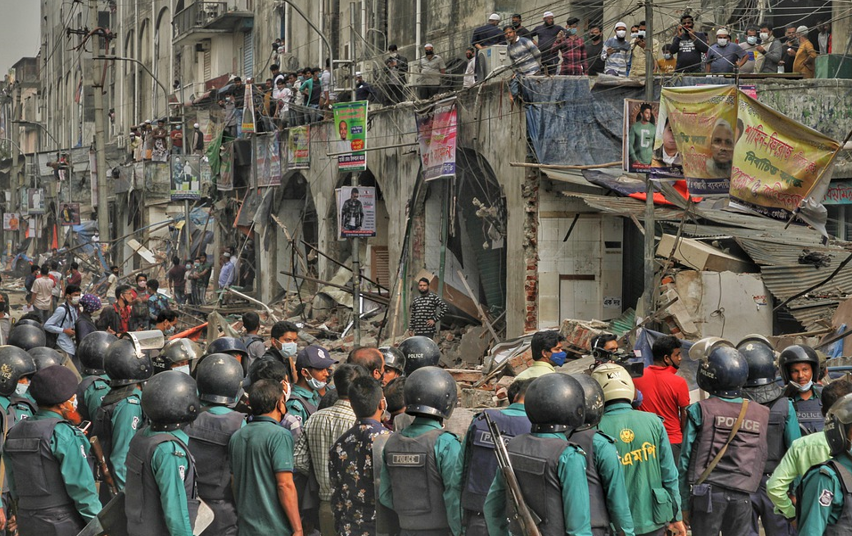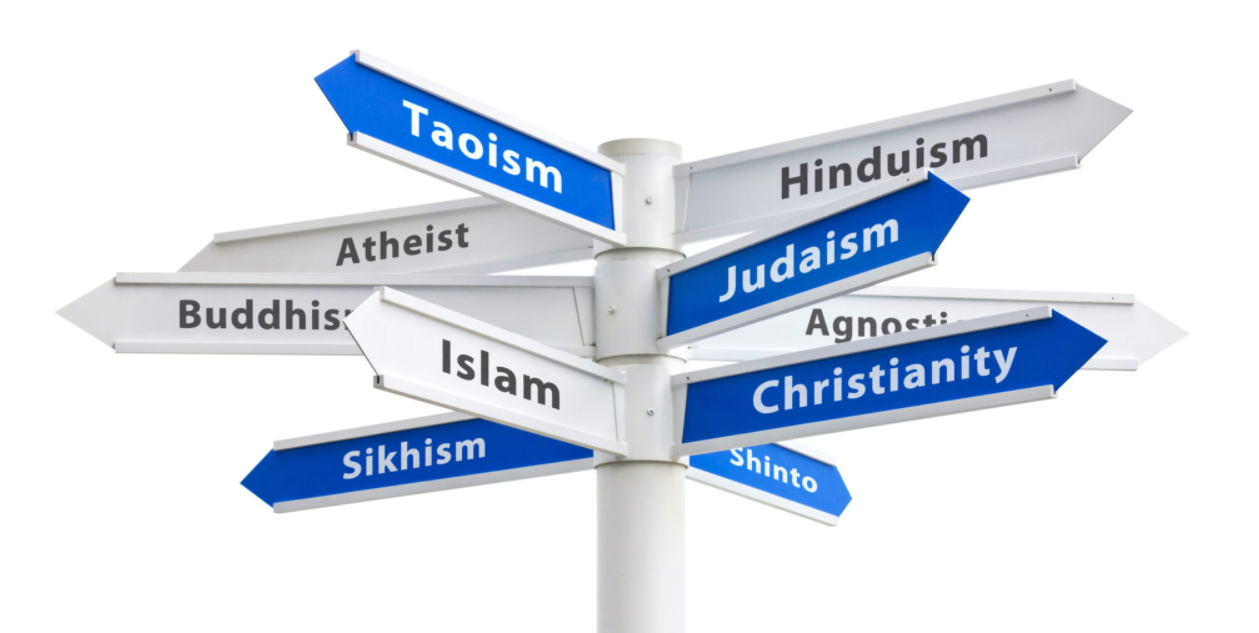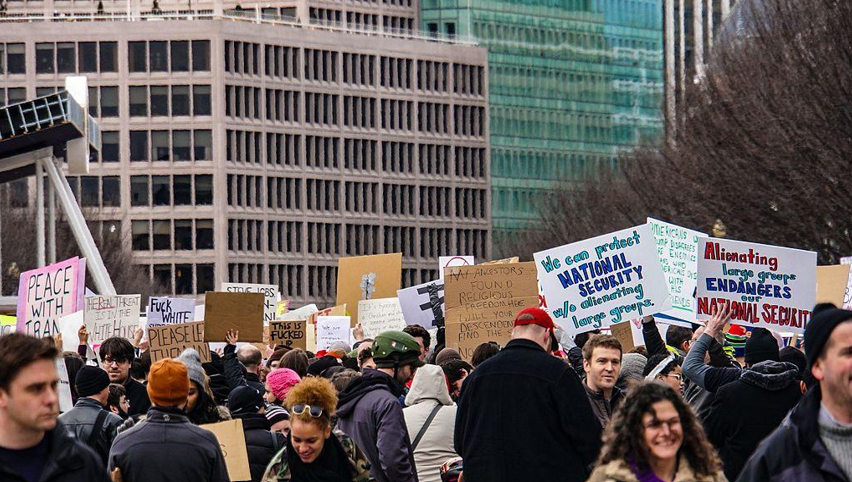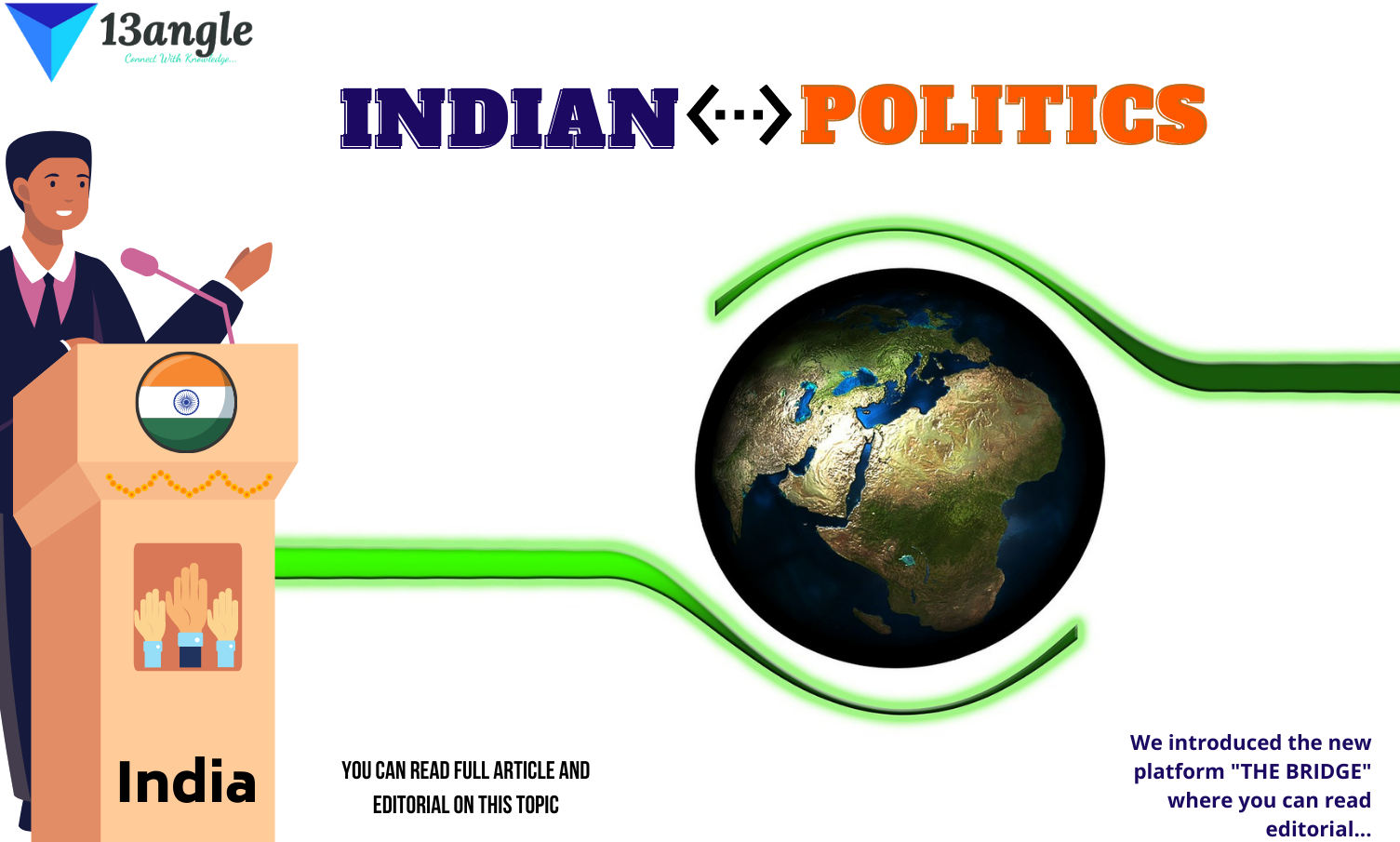
Introduction
- People of different religions are bound to have different opinions and beliefs. These people form a diverse society, which is necessary for growth and advancement in all aspects. Diverse cultural and religious perspectives bring ingenuity and inspire innovation. Religious discrimination has been a major obstacle in our society, dating back to the 16th century. But what is religious discrimination?
What Is Religious Discrimination?

- Religious discrimination involves treating others in a hostile or negative way because of their religious beliefs. There has been a sharp increment in religious violence around the world, in the past decade. According to recent statistics, in 2018, a quarter of the world’s countries experienced a drastic increment of hostilities due to religious hatred. These statistics show an approximate 10% increase in religious crime from the statistics of a decade ago. The most brutal religious violence that took place in 2021 was the Bangladesh Communal Violence. Over 150 temples and religious sites were vandalized and attacked, killing several and injuring hundreds. It was termed as “the worst communal violence in years” by the New York Times.

To prevent religious discrimination many international organizations have taken major steps and have created laws banning it. These laws have been highly efficient in prohibiting such hostile behavior. One such organization is The Office of the UN High Commissioner for Human Rights (OHCHR), which is mandated to promote and protect all human rights established in the UN Charter.
Article 18 of the Universal Declaration of Human Rights (UDHR) states that all humans have the right to their own beliefs, to have or not have religion, or to change it. “The obligation of the state is to guarantee freedom of religion, and that implies dealing with all of them on an equal footing”, these words were stated by the Former Cuban foreign minister Ricardo Alarcon.
Article 18 of the International Covenant on Civil and Political Rights (OHCHR), states that everyone shall have the right to adopt a religion or belief of choice, and freedom. It could be individually, in a group, or in a community with others, and in public or private to manifest one’s belief in worship, practice, observance, or teaching.
These laws help maintain peace and harmony within the diverse society of the world.
Religious Discrimination In Workplaces

- The occurrence of this discrimination is most frequent in workplaces. For example, not hiring or firing an employee because of their religious beliefs. Harassment in the form of insulting comments, humiliation, or any hostile behavior can be considered religious discrimination. Lowering an employee’s salary due to religious beliefs and hindering their promotion is another well-known act of religious discrimination. In certain parts of the world, there are rules in workplaces that forbid women from wearing religious or ethnic wear to their offices, which include hijabs, scarves, etc. These work positions include military posts and officers, and nurses. Islamophobia is a term describing prejudice against Islam or Muslims. It’s common in workplaces that prevent Islams and Muslims from having equal opportunities. Studies show that 19.8% of Muslims are employed full-time compared to the 34.9% overall population in the UK. This shows that Muslims are expected to work “ten times harder” than their white counterparts. A Pew Research Center survey shows that around 82% of American adults say Muslims experience at least some discrimination in the U.S in 2019; 56% say Muslims are discriminated against a lot.
Religious Discrimination By Country

- Religious discrimination is subject to country. Countries can differ based on the laws on freedom of religion, and whether they guarantee equality for all individuals regardless of their religion. Over 120 national constitutions provide equality despite their religion. According to recent statistics, Tajikistan, and Turkmenistan are the most restrictive and religious banning countries. China, preceding the above-mentioned countries, highly discourages religion on a wide basis.
Religious Discrimination In India

A very known example is the Hindu-Muslim riots occurring time and again in India. Despite India’s secular and religion tolerating constitution, the acts and steps taken by the government, and the functioning role of the National Human Rights Commission of India and National Commission for Minorities, religious violence still continues to take place. The most recent case of religious violence in India is the 2020 North East Delhi riots. Beginning on 23 February 2020, there was loads of bloodshed, rioting, and destruction of property, caused by Hindu mobs attacking Muslims. About half a hundred Muslims were killed, some by fire, shooting, or slashed with many repetitions. Over a dozen Hindus, a policeman, and an intelligence officer also encountered painful deaths during the process. The injured were treated in ill-staffed hospitals and medical facilities, corpses were found in drains and by the end of March, there were many cases of missing people. Mosques, a Muslim place of worship, were set ablaze. Most of the property damaged was owned by Muslims. In some peaceful areas of Delhi, Muslims had fled the city back to their hometowns in fear of the ongoing brutal violence. The violence unfortunately has created long-lasting discrimination in the minds of both Hindus and Muslims.
Established in Article 25-28 of The Constitution of India, everyone has a guaranteed right to freedom of religion including both individuals and religious communities in India. Article 25 guarantees freedom of conscience and free profession, practice, and propagation of religion. Article 26 provides that every individual despite their religion has the right to be subject to morality, health, and public order. Article 27 issues freedom as to payment of taxes for the promotion of any particular religion. Article 28 permits educational institutions maintained by religious groups to disseminate religious instruction.
Religious Discrimination In Africa

Africa has unfortunately become one of the top-ranked continents wherein there is abundant religious discrimination. The continent is inhospitable to those worshipping a god except theirs, including those worshipping their god but in a different manner. Religious persecution is significant in Algeria, Egypt, Eritrea, Kenya, Libya, Mauritania, Niger, Nigeria, Somalia, Sudan, and Tanzania.
Recently in Nigeria, a country in West Africa, many religious riots have taken place in 2020 and 2021. In the first 200 days of 2020, about 3500 Christians were murdered. According to recent reports, in addition to the Christians who were killed at the beginning of 2020, approximately 3000 Christians, many of which included young women and girls, were kidnapped by Islamic terrorists and have since remained missing. All this occurred solely due to reasons related to their faith and religion.
West and Southern Africa have a high degree of religious tolerance, whereas others have significant religious discrimination. Christians, Muslims, Ahmadiyya Muslims, and Rastafarians are the religions in Africa who are most discriminated against.
The South African Charter of Religious Rights and Freedoms (SACRRF) states the rights to gather to observe religious belief, freedom of expression regarding religion, the right to citizens to make choices based on their convictions, the right to change their faith, the right to education based on their religion, the right to educate their children based on their philosophical and religious beliefs and the right to refuse to assist in certain duties and participate in certain activities that violate their religious beliefs.
Religious Discrimination In Europe
Most countries in Europe legally establish the freedom of religion and anti-discrimination laws that highlight religious freedom. However, sometimes these rules fail to be properly implemented. Muslims and Jews are most discriminated against in Europe. When rules are not properly executed, religious riots and violence tend to take place. Since the past decade, Muslims have been ill-treated in Europe. Currently, there are about 20 million Muslims in Europe. They are said to be living in “parallel communities” due to the intolerance of their religion. Most Muslim children attend different schools. They are politically and economically inferior in European society. The division in the minds of those in Europe continues to deepen. Islamophobia and Extremism are the main reasons due which these margins have been established. There has been a constant rise in Islamic terror within Europe, from the Bastile day attack in Nice to the Berlin Christmas attack. These violent attacks have ever since painted a negative image of Muslims and Islam, which soon turned into hate.
The Charter of Fundamental Rights of the European Union (ECHR), enshrines certain political, social and economical rights for the European citizens. Under Article 10 of it, everyone has the right to freedom of thought, conscience and religion. These rights include freedom to change belief or religion and freedom, either individually or in community with others, to manifest religion or belief in practice, observance, worship or teaching.
Religious Discrimination In Asia
Like every other continent, Asia as well deals with religious discrimination. Most of the countries in Asia legally establish freedom of religion, but its enforcement varies from country to country. The religious groups that are affected negatively the most, include Muslims, Jews, Christians, Buddhists, atheists and Hindus. Several countries in Asia have established state religion, with Islam being the most common.
According to Article 36 of the Constitution of China, citizens of the People’s Republic of China enjoy the freedom of religious belief. No state organ, public organization or individual may compel citizens to believe in, or not believe in, any religion; nor may they discriminate against citizens who believe in, or do not believe in, any religion. The state protects normal religious activities. No one may make use of religion to engage in activities that disrupt public order, impair the health of citizens or interfere with the educational system of the state. Religious bodies and religious affairs are not subject to any foreign domination.
Although most countries of Asia establish the freedom of religion by law, as shown above, many discrepancies are observed. For example, according to the United States Commission on International Religious Freedom (USCIRF), conditions on religious freedom in China continue to go south. The communist Chinese government has used high-tech surveillance to monitor and harass Christians, Tibetan Buddhists, Falon Gong, and other religions. Experts suggest that an approximately 9,00,000 and 1.8 million Muslims have been detained in several, around 1,300, concentration camps in Xinjiang. Despite such clear laws stated in the Constitution, they fail to be executed on a local basis. China is also widely known for its religious intolerance.
Religious Discrimination In America

In the United States of America, freedom of religious belief is a constitutionally protected right provided in the First Amendment. The way freedom of religion has been interpreted in America is controversial, this includes building places of worship, compulsory speech, prohibited counselling, etc. Muslims and atheists are targeted religions in the United States facing the most religious violence.
According to the First Amendment in The Constitution of the United States of America, Congress shall make no law respecting an establishment of religion, or prohibiting the free exercise thereof; or abridging the freedom of speech, or of the press; or the right of the people peaceably to assemble, and to petition the Government for a redress of grievances.
The most well-known attack in the USA up till this date is the 9/11 attack. This attack was carried out by 19 hijackers of the terrorist organization Al-Qaeda, led by Osama Bin Laden, The motives of the act were stated several times through different sources. This included all religious discrimination enacted upon Muslims over the years. The attack had killed about 3000 people in New York including policemen and firemen.
In 2017, the most intense debate on religious freedom in America since 9/11 took place. Terrorist attacks claimed 130 people’s lives in Paris, due to mass shootings carried out by husband and wife Syed Rizwan Farook and Tashfeen Malik.
It is safe to say that every country in North America includes provisions for the freedom of religion in its constitution. According to US State Department reports, most countries in this region have no major issues regarding religious freedom due to government intervention and societal pressure. Seven countries have blasphemy laws that have been a part of their constitution since the colonial era. Rastafarians face the most religious discrimination in the region, mostly in countries outlawing cannabis which is used in their religious rituals.
Effects Of Religious Discrimination On Society

Discrimination is a broad term, it includes many types and categories. For example, discrimination based on gender (sex), discrimination based on religion or belief, discrimination based on race, discrimination based on skin colour, etc. Many exist at local levels around the world. The effects of any sort of discrimination, mainly racial, sex and religious discrimination can take a toll on the mental and physical health of an individual who has experienced such hostile behaviour. People who experience such discrimination are more susceptible to mental illnesses such as depression, anxiety and stress.
Stereotypes, whether true or false, are embedded in the minds of every human being. Depending on where they were brought up, stereotypes vary. Religious stereotypes have been existing since the beginning of the 16th century. Someone who has experienced religious discrimination may develop a sense of inferiority which may hinder their growth and behaviour.
People who experience religious discrimination also have financial issues. This is because most people who are unemployed or have no source of income are generally fired/not hired due to their religion.
Conclusion
- Religious discrimination is present despite the laws established in every region. The extents to which those laws are followed vary from place to place and country to country. Hence, discrepancies are observed causing riots, violence and hostile behavior. Our society is bound to be diverse. People with different beliefs and worshipping different gods have unique perspectives and opinions which may help in the advancement of our society. So why discriminate against them? Discrimination is a threat to democracy. The need to fight religious discrimination cannot be stressed enough. Some ways you could help end discrimination is by firstly, educating yourself. Grasp as much information as you can before you share it with others. Raise awareness through social media, organisations and participation in events related to the matter. Lastly, if you ever come across or experience religious discrimination, report it.
Top 13 Interesting Facts On Religious Discrimination
Muslims experience up to eight times more discrimination than any other religion.
Religious freedom is non-existent in Saudi Arabia as it is an absolute monarchy in which Sunni Islam is the official state religion.
More than 100 countries have no religious freedom right established by law.
Nearly half of the countries of the world have seen a drastic increase in religious discrimination between 2009 and 2010.
Jews make up less than 1% of the population yet experience significant discrimination based on their religion in above 85 countries.
In 2012 religious violence increased in every major part of the world except America.
A study shows that people who have experienced religious discrimination had an increased prevalence of mental disorders. There was a two-fold increase in the risk of common mental health disorders in those who have experienced discrimination based on their religion.
1,00,000 Christians die each year due to their faith. Which is approximately 13 Christians per day.
According to the Encyclopedia of Wars, out of all 1,763 recorded historical conflicts, 6.98% are primarily caused by religion.
A study from Pew Research Centre, Brazil is the best country for religious freedom with virtually no religious restrictions.
About 800,000 more people were displaced by religion-related armed conflict in 2014 than in the previous year in the Middle East and North Africa.
Religious discrimination takes place the most in workplaces.
According to Pew Research, Gen Z is the least religious, and can significantly reduce religious discrimination.






